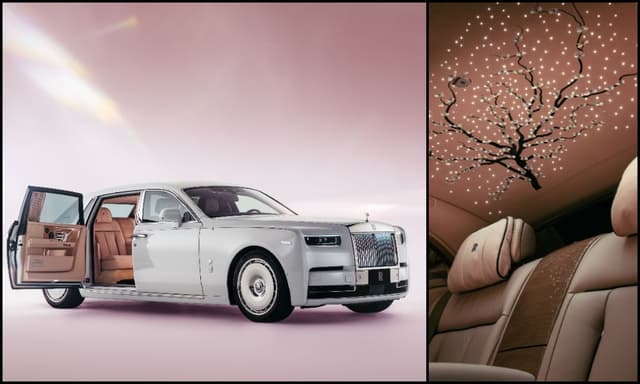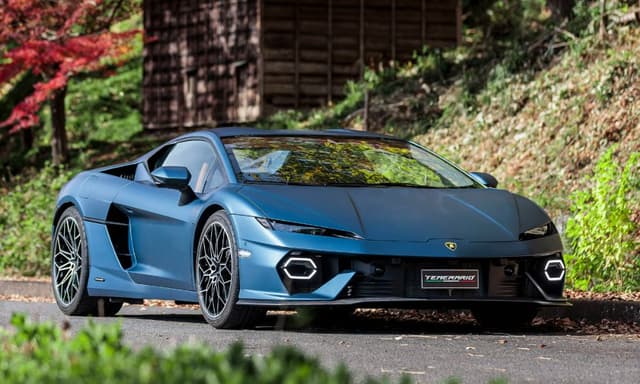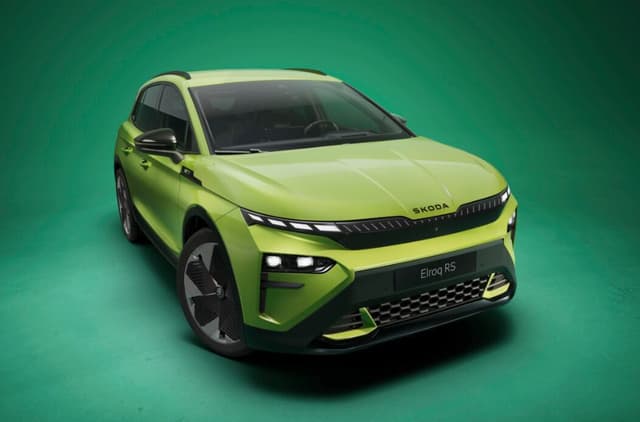Audi To End Combustion Engine Production In 2033; All New Models From 2026 Will Be Electric

Highlights
- From 2026 all new models launched by Audi will get electric drive systems
- 2033 onwards, Audi will go fully electric
- Audi is focusing on zero-emission drive systems
German luxury carmaker, Audi, has announced its new corporate strategy - 'Vorsprung 2030', which essentially translates to Head Start 2030. With this new strategy, the Ingolstadt-based carmaker has finally announced a firm date for Audi's transition to electric mobility. The company has announced that from 2026, it would only launch vehicles that are equipped with electric drive systems. The company further added that it will also gradually phase out the production of its internal combustion engines (ICE) between now and 2033. Announcing the new strategy, Audi CEO Markus Duesmann, said "The pace of change in our society is rapidly increasing. That's why we're accelerating our own transformation."
Also Read: Audi e-tron GT Teased For India; Launch Soon
Audi says that its Board of Management spent the last few months devising the new strategy, which will allow the company to continue living up to its slogan, which is "Vorsprung durch Technik", which means Progress through Technology. The company says that the world's major problems, such as carbon emissions and global warming, can only be solved through the use of clean technologies, and that is why Audi is focusing on zero-emission drive systems. The company research says that the sales and profits will gradually shift, for example, initially from vehicles with combustion engines to electric cars, and later, when autonomous driving offers additional growth potential, to software and services.
Also Read: Audi e-tron 55 Quattro Review

Audi says says that the world's major problems, such as carbon emissions and global warming, can only be solved through the use of clean technologies
Audi's chief strategist Silja Pieh and her team from across the US and China, spent months analysing more than 600 global trends in the mobility sector through 2030 that could become relevant to the company. She said, "One thing our entire team finds extremely encouraging is that many employees and the Board of Management are already deeply committed to the issue of sustainability. We want to further emphasize responsible business practices in the future and rigorously adhere to them." At the same time John Newman, head of digitalisation at Audi said that the company want to "strongly differentiating Audi's all-electric vehicles from the competition through quality and design as well as increasing the added value for customers play an important role." To that effect, Audi will now be in closer and more frequent contact with its customers, with new digital and physical offerings.
Also Read: 2022 Audi Q5 e-tron Electric SUV Images Leaked Ahead Of Debut

Audi intends to place a strong focus on innovations that customers can experience via its "Audi DNA" project
Together with the Volkswagen Group and its other brands, Audi intends to play a leading role in the new mobility world. To that effect, Audi intends to place a strong focus on innovations that customers can experience via its "Audi DNA" project. Essentially, the company is taking a deep dive into technical details such as steering angle requirements, hand torque, and acoustics in order to develop a one-of-a-kind Audi feel for its customers. This also includes the steadily increasing focus on software in vehicles and autonomous driving. Alongside e-mobility, focal points of the Volkswagen Group's strategy include enhancing connectivity, digital services, and expanding the use of internally programmed systems. The company's software arm, CARIAD is also playing an important role in this 2030 strategy. It will develop a scalable software platform with a standardized operating system and cloud connectivity for all Volkswagen Group brands by 2025.
Also Read: Audi Prepares For The 2022 Dakar Rally By Testing The RS Q e-tron
Audi also says that China will continue to play an important role in the company's new strategic alignment. The company estimates that the market for premium vehicles here will grow to 4.5 million units annually by 2030 - in 2020, this figure stood at 3.1 million vehicles. Furthermore, electric vehicles' share of this total could increase from 10 per cent today to as much as 40 per cent by the end of the decade. Thus, Audi will continue expanding its business in China, including increasing the supply of electric cars produced locally. Through the support of VW Group's Chinese partner FAW, Audi also plans to expand its locally produced product range to twelve models by the end of 2021.

In India, Audi has already launched its e-tron SUV range and is now set to bring in the e-tron GT models by the end of 2021
The first products from the collaboration with Audi's second Chinese partner SAIC Volkswagen will be launched in 2022. These will also be sold through the existing dealer investor network operated by FAW-Volkswagen Audi. In India, Audi has already launched its e-tron SUV range and is now set to bring in the e-tron GT models by the end of 2021.
Related Articles
Latest News
Popular Audi Models
 Audi A4Ex-Showroom Price₹ 46.02 - 54.58 Lakh
Audi A4Ex-Showroom Price₹ 46.02 - 54.58 Lakh Audi Q3Ex-Showroom Price₹ 44.25 - 54.65 Lakh
Audi Q3Ex-Showroom Price₹ 44.25 - 54.65 Lakh Audi Q5Ex-Showroom Price₹ 65.51 - 70.8 Lakh
Audi Q5Ex-Showroom Price₹ 65.51 - 70.8 Lakh Audi Q8Ex-Showroom Price₹ 1.17 Crore
Audi Q8Ex-Showroom Price₹ 1.17 Crore Audi Q7Ex-Showroom Price₹ 88.66 - 97.81 Lakh
Audi Q7Ex-Showroom Price₹ 88.66 - 97.81 Lakh Audi A6Ex-Showroom Price₹ 64.41 - 70.79 Lakh
Audi A6Ex-Showroom Price₹ 64.41 - 70.79 Lakh Audi E-TronEx-Showroom Price₹ 1.15 - 1.32 Crore
Audi E-TronEx-Showroom Price₹ 1.15 - 1.32 Crore Audi RS Q8Ex-Showroom Price₹ 2.49 Crore
Audi RS Q8Ex-Showroom Price₹ 2.49 Crore Audi RS5Ex-Showroom Price₹ 1.13 Crore
Audi RS5Ex-Showroom Price₹ 1.13 Crore Audi Q3 SportbackEx-Showroom Price₹ 54.76 - 55.71 Lakh
Audi Q3 SportbackEx-Showroom Price₹ 54.76 - 55.71 Lakh Audi RS E-Tron GTEx-Showroom Price₹ 1.95 Crore
Audi RS E-Tron GTEx-Showroom Price₹ 1.95 Crore Audi S5Ex-Showroom Price₹ 77.32 - 85.1 Lakh
Audi S5Ex-Showroom Price₹ 77.32 - 85.1 Lakh Audi E-Tron GT SportbackEx-Showroom Price₹ 1.8 Crore
Audi E-Tron GT SportbackEx-Showroom Price₹ 1.8 Crore Audi E-Tron GTEx-Showroom Price₹ 1.72 Crore
Audi E-Tron GTEx-Showroom Price₹ 1.72 Crore Audi Q8 E-TronEx-Showroom Price₹ 1.15 - 1.27 Crore
Audi Q8 E-TronEx-Showroom Price₹ 1.15 - 1.27 Crore Audi Q8 E-Tron SportbackEx-Showroom Price₹ 1.19 - 1.32 Crore
Audi Q8 E-Tron SportbackEx-Showroom Price₹ 1.19 - 1.32 Crore
- Home
- News
- Technology
- Audi To End Combustion Engine Production In 2033; All New Models From 2026 Will Be Electric














